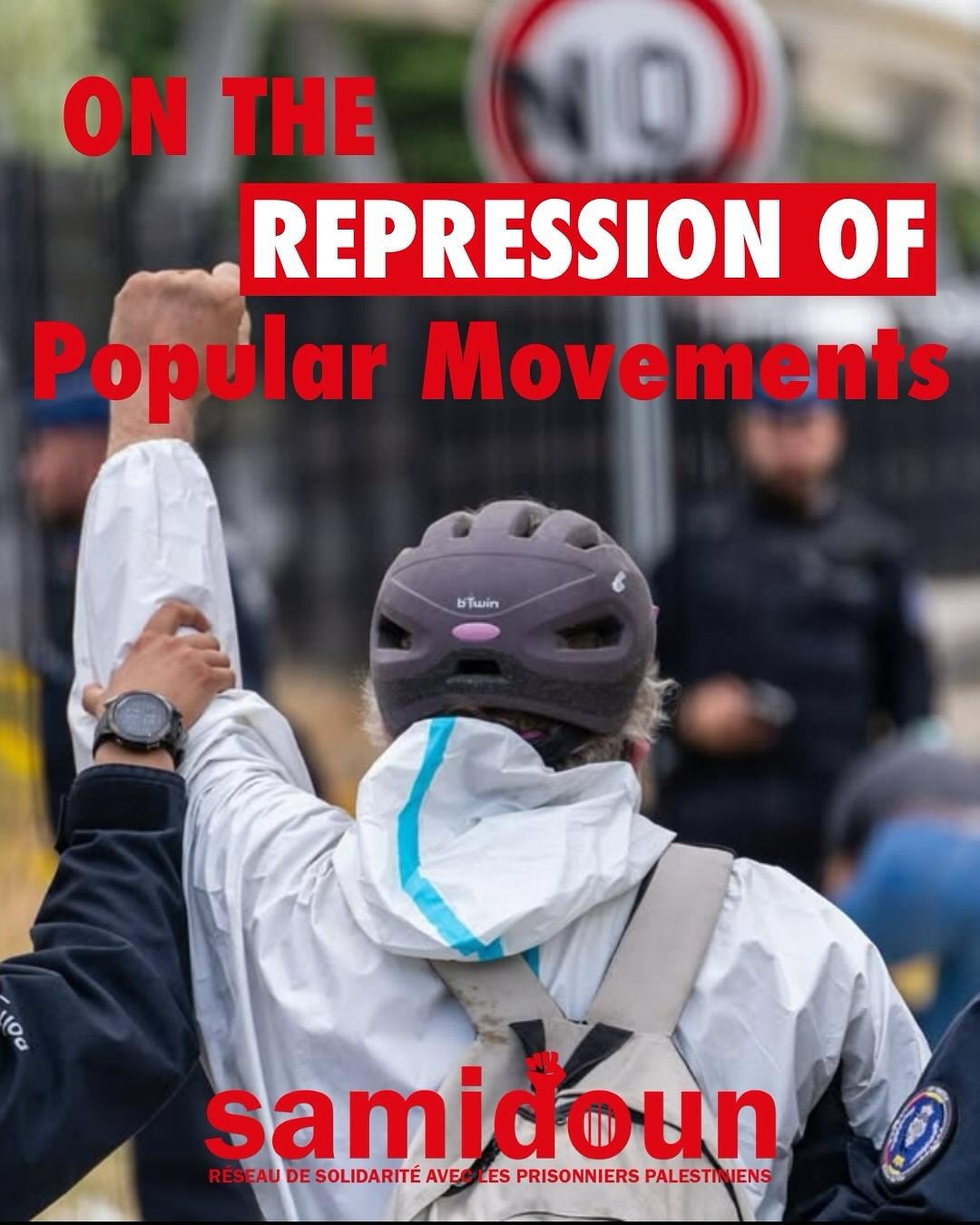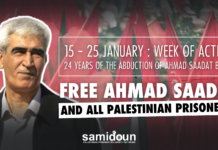
Last week the Belgian federal government passed a bill that Prime Minister Bart De Wever says will finally put an “end to extremist and radical organisations”. Despite only being the first step in a long legal procedure, de Wever has stated that the law is directed towards Samidoun, Code Rouge and any other organisations that “encourage violence”, by making it easier to dissolve them.
The bill follows the leaked OCAM report which describes the recent mass actions of Code Rouge and Stop Arming Israel as signaling a transition from peaceful climate activism to extremist violence. A transition that the report argues, has been led by radical far-left organisations such as Soulèvements de la Terra, Gauche Anticapitaliste, and climate activists participation in pro-Palestinian protests.
The extremist violence in question? The dismantling of infrastructure and materials owned by the multinational agro-buisness Cargill and the Zionist-owned company Elbit System, both responsible for the wholescale destruction of nature of societies across the world. And the political support of the Palestinian resistance, who continues to defend Palestine against a genocidal state that have sought to occupy and ethnically cleanse Palestinians the last 77 years.
Far from an accident, the new wave of repression responds to the intensification of Israel’s man-made famine. A famine, in which the 2.2 milion people living in Gaza are now entering the “fifth stage” where the entire population face death by starvation.
Instead of pressuring “Israel” to allow aid into Gaza, the fascist Arizona government have launched a media campaign that shifts attention from the genocidal violence in Gaza, to the ‘threat’ of extremist violence in Belgium. A strategy that seeks to convince the public that political support of armed resistance, or the use of vandalism, is more violent than Belgium’s participation in a genocide.
This tell us that the government is less concerned with an increased threat of violence, than it is subjugating dissent.
Far from an accident, the state recognises the loss in their legitimacy by continuing to support a genocidal regime, and now sees the need to use further brute force and blatant propaganda to protect their rule. In this light, the proposed legal framework needs to be understood as laying the foundation for the increased repression and persecution of popular movements that threaten the fascists hold on power.
Repression that builds on the violence and persecution of the pro-Palestinian protestors at the Bourse, systemic racism and Belgium’s colonial history.
The protests, led by a group of young Gazans living in Belgium and organising with the Ahrar Collective have made the Bourse a place where people can gather to express their outrage at the genocide and European complicity. A place where the Belgian people can voice their solidarity with the Palestinian people and their resistance. In response, they have been brutally repressed by the police on several occasions, with Palestinian refugees being hospitalised, arrested, and threatened with deportation. Arrests, that are part of an long-standing, but unsuccessful, attempt to silence the protest and target the Palestinians at their centre.
The violent arrests reflect a broader context of racist police and state violence. Parallel to the violent arrests of the Bourse protestors, the Belgian police have killed four people, including Fabian, an 11-year-old boy, Christophe Amine, Jidel and recently an unnamed 19-year-old. Their names are added to an ever increasing list of people murdered by Belgium’s police force.
When confronted by the mourning of their victims’ families at the Marche Blanche for Fabian, the police resorted to further violence by deploying anti-gang forces equipped with flash-ball guns to violently disperse the march.
Within this wider context, we begin to understand how state repression takes shape, and how we can resist it. On the one hand, the state uses claims to violence to legitimize violent interventions. Claims that attempts to legally and morally justify the repression, while diverting people’s attention from the death and destruction that companies and the state profits from. On the other hand, it targets the popular bases of our movements by drawing a false division between ‘good protestors’ and ‘bad protestors’. A division that relies on spreading the idea that the state and the merchants of war can come to respect human life and nature if we protest according to their terms.
In the pro-Palestinian movement, this division has led to parties and organizations distancing themselves from the “bad protestors” who are facing repression, thinking that it will protect them. A strategy through which we have seen the list of people and organizations facing repression steadily increase over time.
The same is now happening within the climate movement, with politicians and organizations who have previously supported Code Rouge now taking their distance. While they do so thinking it will protect them from state repression, it is time that we recognize that the state will only stop when every collective, organisation and movement that threatens the ruling elite and their profit from war and destruction, have been dissolved.
Rather than being intimidated, the members of Ahrar, Code Rouge and the many other organisations who continue to mobilize when targeted by the state, show us how the repression they face only works to strengthen their resistance and steadfastness.
Despite the continued violence, arrests and threats of deportation, the protests at Bourse continue every day. And since the release of the OCAM report Code Rouge have shown no signs of backing down, stating instead “Even if activists managed to get their hands of the state’s many F35s and bomb the shit out of Cargill, the damage would be nothing compared to the damage this company does daily”.
They make it clear that our power is not rooted in making appeals to the Belgian state and the companies it protects, but in our collective power to organize a popular movement that the state cannot ignore nor suppress. A movement that mobilizes when it’s comrades are targeted, sending a clear signal to the state and police, that if you come for one of us, you come for us all.
We stand in solidarity with our comrades in Ahrar, Code Rouge, Soulèvements de la Terre, Stop Arming Israel and every other popular movement facing state repression and police violence.
Discover more from Samidoun: Palestinian Prisoner Solidarity Network
Subscribe to get the latest posts sent to your email.




